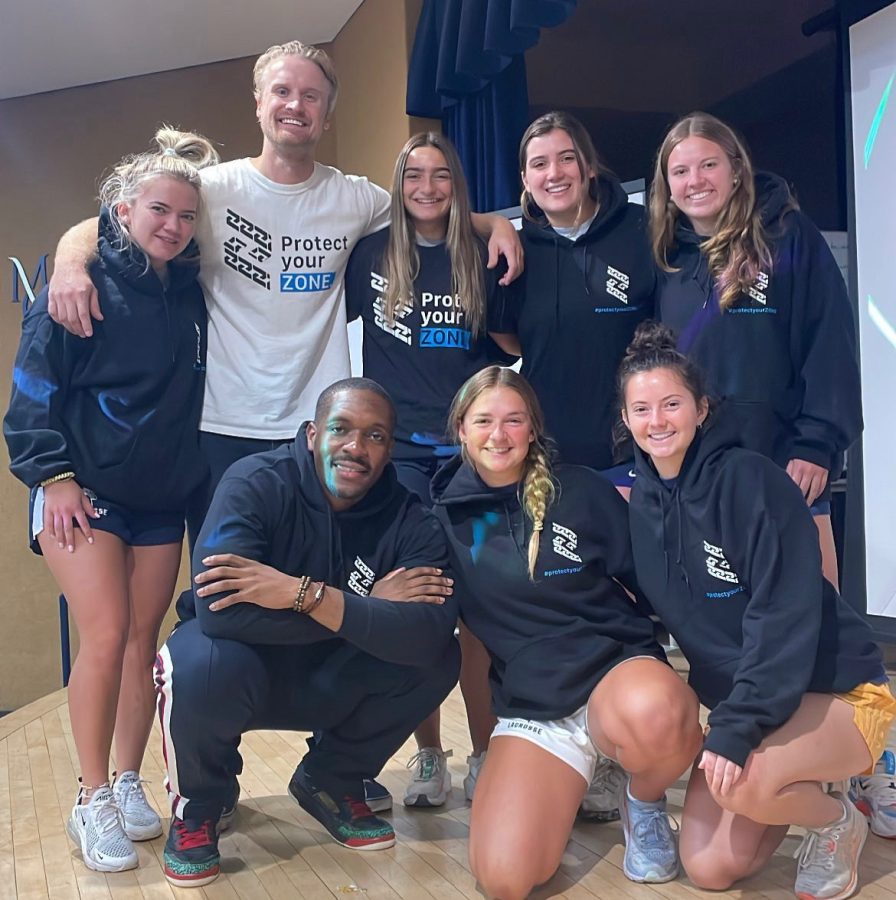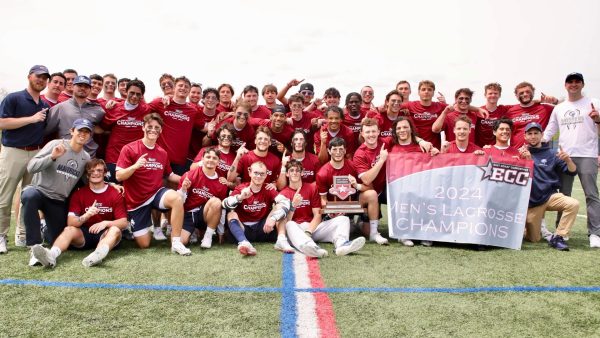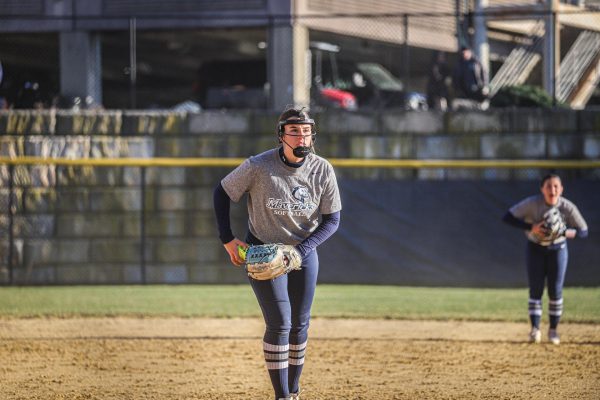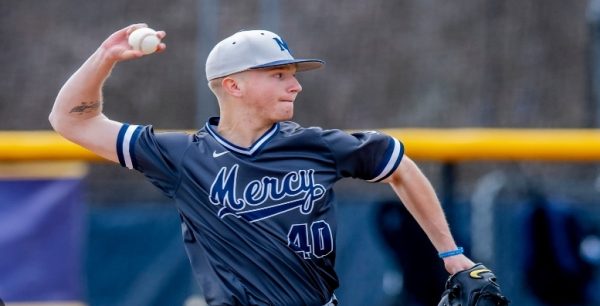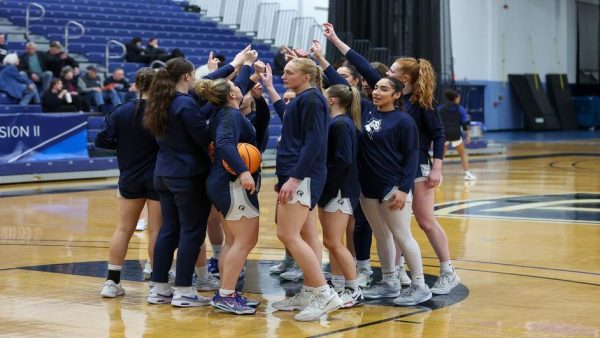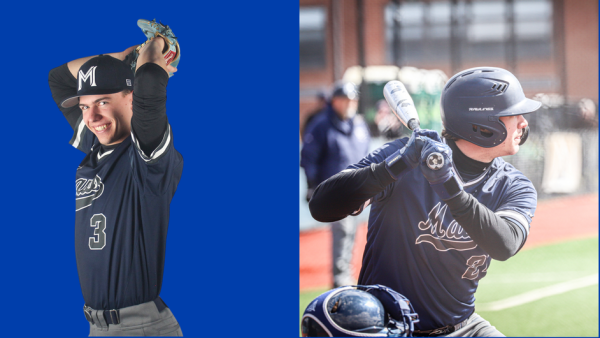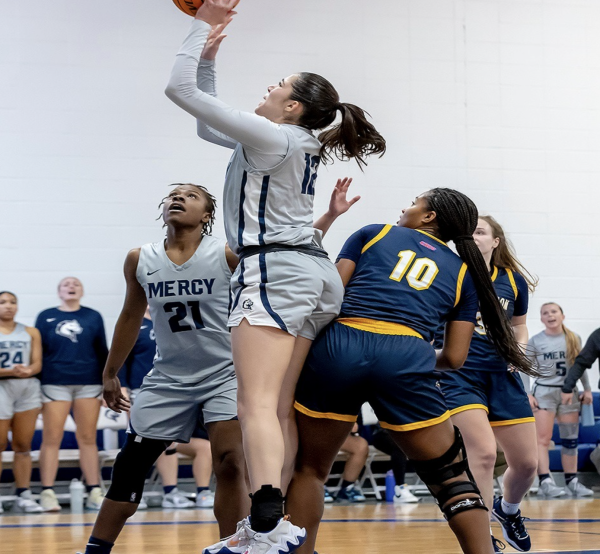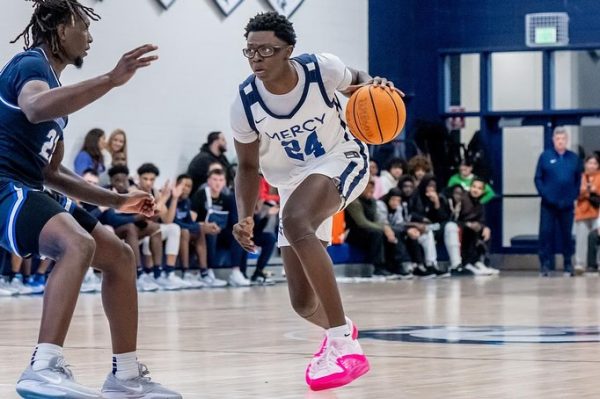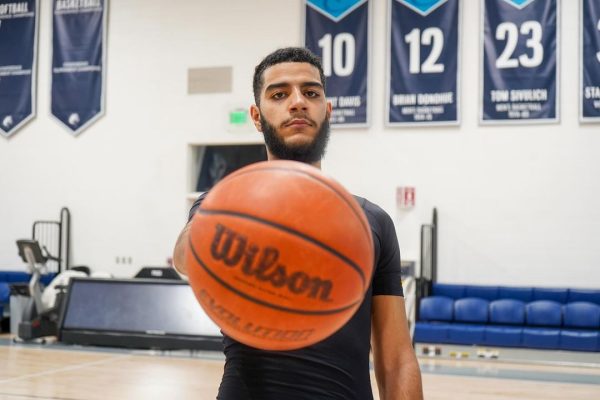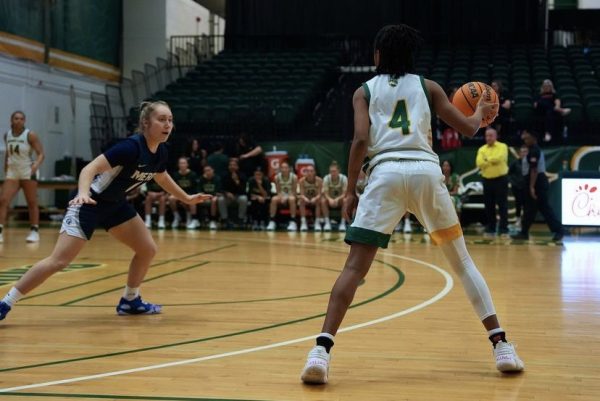The Zone Is Here For Your Well Being
Ivan Tchatchouwo and Erik Poldroo arrived at Mercy College’s Dobbs Ferry campus early this September to share a message about the struggles of mental health with the Maverick student-athletes and were offering them some help with their new wellness app, The Zone.
It’s no secret that mental health has been at the forefront of the nation’s attention span for the past few years. In the world of college athletics, many individuals have unfortunately taken their own life over the past two years. Most notably, people will remember March and April of this year when five student-athletes took their own lives over that span. COVID-19 has been linked to a lot of the uptick in mental health trouble. The NCAA released an article in May of this year noting that the rate of mental exhaustion, anxiety, and depression has risen to double the amount that was reported in student athletes before 2020.
Professional sports leagues and players have also brought the topic to the forefront of the nation’s attention span. Athletes like Kevin Love of the Cleveland Cavaliers have been outspoken about the journey through mental health struggles and battles with depression. The openness of professional athletes has caused college athletes to take a better look inward, but many are not sure what to look for.
The Zone, an application that was launched in May of 2021, is designed and functioned for student-athletes who may be struggling with their mental health. Originally, the company was formed as an event company in 2017 before drastically changing its direction towards a mental health app. Tchatchouwo and Poldroo recognized that student-athletes were the main group that struggled to deal with their mental health. Not only were the resources not made readily available for student-athletes, but also they were unsure about how to open up within themselves. They also realized that student-athletes may not have the available free time to simply check in on themselves. This is a problem both experienced during their own college athletic journey.
Tchatchouwo, a former basketball player at Division II Concordia College-New York, faced similar struggles as a college athlete. Raised in the Bronx, he recognized that many of his friends were fully committed to being athletes, but were unsure of how to cope with life outside of that identity.
“I had a lot of friends who were higher achieving, and when they finished and they didn’t make it to the pros or the NBA. Some of them tried to play semi-pro but some of them lost everything. It’s just because of that lost period that they can’t get over.”
After injuring himself before his junior year, Tchatchouwo struggled with his own bouts of depression. His grades slipped and he began alienating his coaches and peers. It was only when a meeting was set up with his school psychologist that he was able to finally recognize the issue at hand and deal with it.
Tchatchouwo recognized as well that coming from an area like the Bronx that mental health is an issue that is not being discussed enough, and he mentioned that talking to his parents about it was very difficult. “It was just hard to talk about at first because they didn’t really understand, you know? This isn’t something that they were ever aware of.”
He also recognized that he would not have been aware that there was even a resource available for him if he had not been notified by his coach, and that is where the idea for the app began. After Tchatchouwo graduated, he started to take graduate classes at Columbia. It was here that the idea for The Zone started to formulate. Tchatchouwo had already begun to run wellness camps around the area where he was from. This was a way to reach a wider audience of collegiate athletes.
Poldroo has his own athletic and personal struggles. Coming from a single-mom household, Poldroo said that upbringing comes with “its own pressure,” but that playing his sport, baseball, brought forth all new types of pressure.
“My performance anxiety was so severe at times that it was paralyzing. You start overthinking and then it just spirals from there.” Poldroo acknowledged that he had gotten the “yips,” a common baseball term for suddenly not becoming to throw the ball accurately, with his pitching performance. He ended up moving to the outfield at the same school as Tchatchouwo, Concordia College-New York.
Poldroo’s mental health continued to take a toll. As he moved into his later collegiate years, the pressure mounted as he began playing in front of several professional scouts. “My knees were shaking when I was in the box and I was putting all this pressure on myself to perform.”
While Poldroo struggled in silence, he also acknowledged that his teammates were more than likely struggling just like he was, and recognized that there were limited options for them to figure out their journeys through mental health. He, along with Tchatchouwo, recognized that more can be done.
Poldroo and Tchatchouwo joined together, along with Janaya Reid, co-founded the application together and began their tour to reach a wide audience of college athletes. Currently, the app is paired with seven different universities, including Mercy, and is continuing to spread awareness about the app for all.
Lindsey Shimborske, a sophomore lacrosse athlete, was at the meeting along with all of the other players to get her introduction to the app and the cause. “I’ve used the app almost daily since it was introduced. It’s improved my mental health and allowed me to vocalize my feelings without the fear of being judged.”
Shimborske also mentioned that she “recommends this app to others,” and Tchatchouwo and Poldroo also stressed that this app is not just for student-athletes. “People are busy not only with sports, but also with life, and this app is a way to check in on yourself even if it’s just for five minutes every day.”
Five minutes every day is the goal, they say. They want people who use their app every day to simply take a few minutes for themselves and re-evaluate how they’re feeling, and it’s a message they continue to spread to college campuses all across the country.
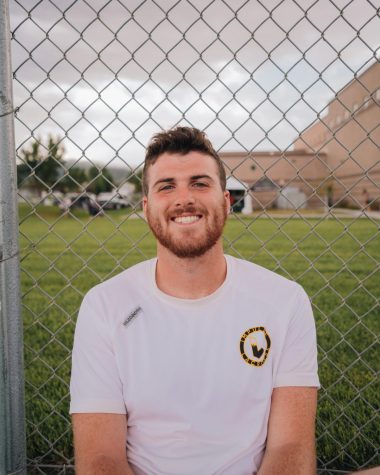
Zack Higgins is a 5th year Media Studies major at Mercy College. He is a previous student of Salisbury University, Onondaga Community College, and the...



